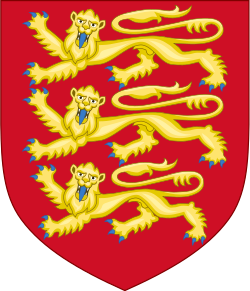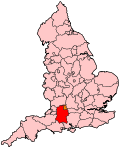Early responses
Various local councils indicated their wish to seek unitary authority status. One town and three cities were overlooked by the 1990s review: Ipswich, Oxford, Norwich and Exeter [2] proposed unitary status on their present boundaries, and commissioned a report jointly to press their case. [3] Norwich announced its intention to respond to the invitation, [4] as did Ipswich and Exeter. [5] [6] In Lancashire, Preston and South Ribble desired to form a single unitary authority although Preston bid for it alone. [7] [8] The City of Lancaster considered seeking unitary status on its present boundaries (having supported a merger with South Lakeland and Barrow-in-Furness to form a Morecambe Bay unitary authority during the referendums review). [9] Blackpool advocated a merger with the Fylde and Wyre districts, which they did not support. [10] Pendle and Burnley also tried to form a unitary authority with Rossendale; however Rossendale rejected this.
The Local Government Chronicle suggested that the non-metropolitan counties of Cornwall, Shropshire, Durham, Cumbria and Northumberland would fit the government's criteria, and that the government would be unlikely to favour carving out unitary authorities from existing two-tier counties. [11] Shropshire County Council, as well as two of the five districts of Shropshire, stated their wish for a move to unitary status. [12] [13] The issue was considered in Durham and Cumbria [14] [15] and the idea of a North Cumbria authority covering the Eden, Copeland, Carlisle and Allerdale districts had some support. [16] The issue was also considered in Northumberland, with the county council in favour of one Northumberland unitary authority. Alan Beith, the MP for Berwick at the far north of Northumberland, suggested instead a three unitary solution, with authorities for the largely rural north and south-west, and an authority for the urban south-east (Wansbeck and Blyth Valley). [17]
Consultation period
On 26 January 2007, the government confirmed that 26 proposals for unitary authorities had been received. [18] Various county councils proposed they should become unitary authorities: Bedfordshire, Cheshire, Cornwall, Cumbria, Durham, North Yorkshire, Northumberland, Shropshire, Somerset and Wiltshire. Districts seeking to become unitary authorities on their own were Bedford, Exeter, Ipswich, Lancaster, Oxford, Preston. Pendle and Burnley proposed merging as a unitary authority. On 27 March 2007, the government announced that the proposals by Bedfordshire, Bedford, Cornwall, Cheshire, Cumbria, Durham, Exeter, Ipswich, North Yorkshire, Norwich, Shropshire, Somerset and Wiltshire to become unitary authorities would go into the next phase, as would the proposal of Chester for a two-unitary authority Cheshire and by the districts of Northumberland for a two-unitary Northumberland. [19]
On 25 July 2007 it was announced that the unitary proposals by Cumbria, North Yorkshire and Somerset [20] had been rejected. [21] On 5 December 2007 it was explained that the unitary proposals by Exeter, and Ipswich, like those of Norwich (which were referred for review on 25 July 2007) did not meet the requirements to proceed; but may be reconsidered after the Boundary Committee has conducted a review of local government structures across the whole of the two-tier counties they are currently a part of.
A legal challenge was made by Shrewsbury and Atcham Borough Council and by Congleton Borough Council to the government's decisions, on the basis (amongst other things) that the reviews were made without statutory authority. The High Court and then on 4 March 2008 the Court of Appeal rejected the challenge, finding that the review had been legalised retrospectively. [22]
† - in the context of examining options for unitary arrangements in the wider county area.
‡ - the Boundary Committee is asked to advise whether an alternative unitary proposal for Norwich based on revised council boundaries could deliver the required improvements.

















